The Association for Citizenship Teaching
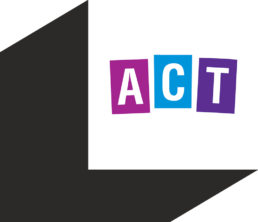
The Association for Citizenship Teaching
The Association for Citizenship Teaching (ACT) provides advice, training, conferences and resources to support the provision of quality Citizenship education.
ACT’s values are embodied in the way we work: we are open, democratic, collaborative and ethical. Equality and justice are at the heart of what we do. We work efficiently to make the best of scarce resources in the interests of members and the wider community. We are inclusive and seek strong and lasting relationships with like-minded organisations.
Our vision is for all young people to be equipped through effective Citizenship Education to become active, informed citizens who can participate in democratic life. The Association for Citizenship Teaching (ACT) is the subject association for Citizenship. It achieves its aim by providing membership services and education programmes while representing teachers and others involved in Citizenship education both across the UK and overseas. ACT provides expert advice, training, conferences and resources to support the provision of quality Citizenship education.
Beyond advocating for the subject, ACT supports subject research, and offers strategic policy advice.
iEducate Global
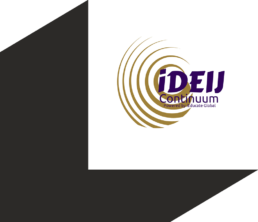
iEducate Global
The iDEIJ Continuum is a student-centred, peer-reviewed, holistic framework of indicators that serve as a roadmap and mean of support for schools in their journey as an inclusive, equitable and just educational community where every student of all diverse social identities and cultural backgrounds thrive.
The iDEIJ Continuum, is powered by iEducate Global in partnership with AIELOC. Our mission is to help actualise international education culture and teaching & learning practices, by aligning its values with approaches that truly meet the needs and potential of the 21st-century learner.
The Black Nursery Manager
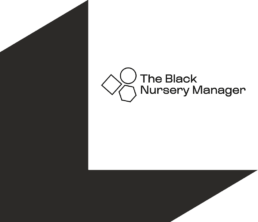
The Black Nursery Manager
Liz Pemberton (she/her) is the Director of The Black Nursery Manager Ltd – a training & consultancy company which focuses on anti-racist practice within Early Years. With 20 years in the education sector, Liz’s roles have included Secondary School Teacher (QTS), public speaker and up until 2020, Nursery Manager, allowing her to teach, manage, support and educate Early Years students, practitioners and professionals in a variety of forums.
Liz’s mission is to continue to promote inclusive practice in the Early Years sector, with a particular focus on how race, culture and ethnicity should be considered in this practice. Liz has developed a fantastic network of likeminded practitioners and professionals by sharing her expertise about why anti-racist pedagogy must be a thread that runs throughout early years practice. With bespoke CPD that she has developed and delivered to a range of clients locally, nationally and internationally. Liz wants to help the adults who care for and educate children under 5 to deepen their knowledge about anti-racism as a series of ongoing, conscious and intentional actions.
Liz’s accolades include being recognised in 2024 by Serendipity Institute for Black Arts and Heritage as 1 of 100 Black Women Who Have Made a Mark, nominated as a finalist for trainer of the year for the 2022 Nursery World Awards, recognised by the Black Cultural Archives as one of their 2022 40×40 Future Leaders, winner of the 2022 Guardian Angel award at the Glomama Awards and in 2021 securing her place as the winner of the Community Unsung She-ro award at the Multicultural Business & Community Champion Awards (MBCC).
Pride and Progress
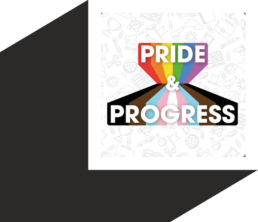
Pride & Progress
Pride & Progress is a podcast and a platform that amplifies the voices of LGBTQ+ educators and allies. We hold hopeful conversations with a diverse range of LGBTQ+ educators and allies about the work they are doing to make their educational spaces more equitable and inclusive.
We are educating through a unique and pivotal moment for inclusive education. Now, for the first time ever, educators are strongly encouraged to make education, and our educational spaces, inclusive of LGBTQ+ lives. This requires a complete reimagining of what education could, and should look like: an education that reflects the diversity of society, and allows all people to see themselves and to feel they belong. Join us as we amplify the voices of brilliant educators, share their stories of Pride & Progress, and celebrate the true power of diversity in education.
Our Endorsements
Our Endorsements
Our Endorsements
We are delighted by the endorsements that our early reviewers of our book, Diverse Educators: A Manifesto, have shared with us. Find out what they think below.
This book is a collaborative tour de force. Rarely have I read anything which has made me think as much as this book has. Tapping into the experiences of a wide range of writers whose lives have been, in so many ways, quite different from my own, has been sobering, humbling but ultimately energising. This book deserves to be widely read, robustly discussed and, crucially, its key messages need to be acted upon so that we work to change our world for the better – for everyone.
Dr Jill Berry, Leadership consultant, writer and educational commentator
This truly is a remarkable book. Given the plurality of perspectives, this book is beyond “an essential read”, but, in my view, must be categorised as a “MUST READ” for everyone connected with the education ecosystem. Not only does the reading of the entirety of this book empower the reader to imagine, empathise and understand an array of diverse experiences, but, by doing so, it supports the cognitive enactment of promoting understanding, tackling prejudice and the fostering of good relations between the Protected Characteristics from within. This is because the content of Diverse Educators makes visible those experiences which are often overlooked and made systemically invisible within education and society. When linked with the Equality Act 2010, the power of this book is realised because it demonstrates how, by thinking and working collectively, education is absolutely integral to the building of a fair and socially just society which includes everyone and leaves no one behind.
Claire Birkenshaw, Lecturer in Childhood and Education at the Carnegie School of Education, Leeds Beckett University
This book is a powerful tool containing the richness of lived experiences and the insight to move education practice on. An essential read for anyone involved in education.
Rachel Boyle, Head of Interdisciplinary Studies at Leeds Beckett University
I thought this was an impressive collection of voices, viewpoints and ideas which not only covers each Protected Characteristic individually, but also addresses the importance of intersectionality. An important read for everyone working in education, from trainee teachers and ECTs to experienced headteachers.
Sarah Brownsword, Lecturer in Primary Education, Primary PGCE Course Co-Director
This book makes an important contribution to an important topic. With its diverse range of passionate and expert contributors, each of whom brings a powerful personal narrative and perspective, this book is a must-read for anyone working in or with schools.
Andy Buck, Founder of Leadership Matters
A comprehensive and insightful book that lays out a path to move from ‘intention to action’ in relation to inclusion within our schools. Such a wide range of lived experiences and knowledge make this a must read for anyone who is serious about creating sustainable cultural change and legacy.
James Coleman, Head of Operations and Training, NASBTT
A powerful collection of narratives offering valuable perspectives from across the protected characteristics and beyond. There should be a copy of this in every school.
Serdar Ferit, CEO of Lyfta Education
An upstanding and brave manifesto, diverse in its capture of global consciousness which weaves a golden thread of collective agency and supports by providing the tools for sustained systemic challenge and change. This will be the handbook for proactive DEI leaders who have identified the “burning need” in their establishments and those of us who are impatient to mainstream that change.
Karen Giles, B.Ed. (Hons), NPQH, FCCT, Interim Executive Headteacher
Ambitious in scope and, appropriately, diverse in perspective. I learned something valuable on every page.
Russell Hobby, CEO Teach First
Wow. This book is full of deep analyses of so many diversity issues yet also remains practical and down-to-earth. I have worked in education all my life but this book helped me to look afresh at so many key aspects and I learned a lot. You can choose to read the whole thing but also use it as a reference guide when particular issues come to the forefront. Teachers and educators will find it invaluable. Very impressive.
Steve Munby, Visiting Professor, Centre for Educational Leadership, University College London
This is a powerful resource for educators everywhere. A wide range of concise contributions with ‘key takeaways’ are included with areas for deep reflection and strategies for practical implementation. We are treated to positive inclusive examples and personal stories that illustrate the power of language and action in smashing stereotypes. Highly recommended for school leaders and for teachers who seek to offer a learning environment where marginalised ideas and voices are truly heard.
Dame Alison Peacock, Chief Executive Chartered College of Teaching
This is a powerful collection of voices, views and stories, bringing together a thought-provoking range of genuinely diverse perspectives. These rich experiences, shared generously and openly, are anchored in a firm belief that we are able to change things for the better: a true manifesto.
Hilary Spencer, CEO at Ambition Institute
In a sector that lacks diversity of thought, representation and lived life experiences this book has the potential to make a great contribution. Its content is as diverse as its subject – giving the reader a huge range of perspectives and food for thought. What they all have in common though is a very practical, constructive approach giving actionable advice that has the potential to make a real difference.
Samantha Twiselton, Director of Sheffield Institute of Education
A genuinely extraordinary book. This is a careful exploration of all of the important complexity of diversity in schools. Hannah and Bennie have assembled a diverse array of knowledgeable and experienced writers who carefully pick apart each characteristic and educate us with warmth, wisdom and passion. In each chapter we’re asked to reflect, we connect with stories that are sometimes inspiring, sometimes heartrending, and we’re given plenty of evidence to contemplate. I can’t wait to recommend it to colleagues and friends.
David Weston, Chief Executive of the Teacher Development Trust
Cultural Intelligence Toolkit
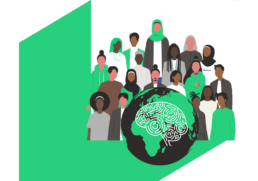
Cultural Intelligence Toolkit
Cultural Intelligence Toolkit
Toolkit collated by Hannah Wilson
What Is Cultural Intelligence?
Cultural intelligence or Cultural Quotient (CQ) is the capability to relate and work effectively across cultures. The term has been used in business, education, government and academic research contexts.
- Head is the knowledge and understanding that you need good CQ. This comes, in part, from observation and research. But you also need strategies for gathering new information – and the ability to use those strategies to recognise a culture's shared understandings. That will enable you to adapt your decision making and communication.
- Body means translating cultural information into visible actions. These are usually the clearest ways in which your CQ is seen by others. You show it in your gestures, your body language, and the way you carry out culturally significant tasks.
- Heart. To have high CQ, you need to be self-assured, not afraid to make honest mistakes, and confident enough to keep improving by tackling new cultural situations.
People with high CQ use all three of these elements to monitor and moderate their actions. Without making quick judgements, or falling back on stereotypes, they can interpret what is happening in any cultural setting and adjust their behaviour accordingly.
Cultural Intelligence is thus the skill of relating and working effectively in culturally diverse situations. It is the capability to cross boundaries and prosper in multiple cultures.
- CQ Drive: The motivation to learn about new cultures.
- CQ Knowledge: Understanding how cultures influence what people say and do.
- CQ Strategy: Having a plan to respond to cultural differences.
- CQ Action: Behaving in culturally-sensitive ways, including handling any difficulties that arise.
The Diverse Educators’ Cultural Intelligence Toolkit
- How are we identifying and articulating our individual and collective motivation to learn about new cultures?
- How are we developing our knowledge and understanding of how different cultures influence what people say and do?
- How are we shaping our strategic plan to develop cultural competencies across our community?
- How do we ensure that we are all consistently behaving in culturally-sensitive ways?
- How do we develop the skills in ourselves and in others to handle any difficulties that arise?
Articles
White Paper: The Inclusive Culture Pyramid
An introspective look at implementing CQ as an EDI/DEI solution in organisations
Blogs
Books
Barquin Rotchford, G. Cultural Intelligence The key to Transformational Changes in Companies: 100 Considerations and food for thought
Gibson, R. Bridge the Culture Gaps: A toolkit for effective collaboration in the diverse, global workplace
Karayel, F. Inclusive Intelligence: How to be a Role Model for Diversity and Inclusion in the Workplace
Livermore, D. Cultural Intelligence: Improving Your CQ to Engage Our Multicultural World (Youth, Family, and Culture)
Thomas, D.C. Cultural Intelligence: Building People Skills for the 21st Century: Surviving and Thriving in the Global Village
Podcasts
Resources
TED Talks
Cultural intelligence -- a new way to think about global effectiveness | Jeff Thomas | TEDxSpokane
Cultural intelligence: the competitive edge for leaders | Julia Middleton | TEDxEastEnd
Videos
Religion and Beliefs Toolkit

Religion and Beliefs Toolkit
Religion and Beliefs Toolkit
Toolkit collated by Zahara Chowdhury
What Are Religion and Beliefs?
Religious beliefs are a set of principles, which are sacred and holy for individuals and communities. Religion often involves a belief in a God, Gods or a higher power.
It is important to remember that religion and religious beliefs are not limited to organised and institutionalised systems.
Religious beliefs and religions are a way of understanding the origins and history of our existence and world; they help communities and individuals navigate their day to day lives, morality, cultures and societies. For many countries around the world, religion and religious beliefs are the foundations for political and legal systems.
Professional and public spheres can impact how people with religious beliefs navigate the society, community and workplaces they are in. Organisations can create policies and practices, which appreciate and acknowledge religion and therefore create a culture and environment of belonging, without bias for individuals with religious beliefs.
The Diverse Educators’ Religion and Beliefs Toolkit
- What do I know about religion and religious beliefs?
- How can I support and appreciate people with religious beliefs in personal and professional lives?
- How do I challenge religious bias and stereotyping?
- How do I support and create a safe and inclusive culture for people with religious beliefs?
- How do I ask questions and navigate conversations about religion and religious beliefs?
Articles
Blogs
Books
Podcasts
Resources
Our Pastoral Training
Our Pastoral Training
Our Pastoral Training
Our Training Offer
We support tutors, heads of year, phase leaders and safeguarding leads in schools and trusts, in developing their confidence and competence in exploring belonging, identity and psychological safety.
We can deliver face to face and virtually, for pastoral meetings, twilights and conferences
We can create a safe space to help pastoral team members explore their own identities to become more aware of their own unconscious biases and how to navigate them.
- Developing an understanding of key DEI concepts and language
- Reflecting on our own identities and lived experience
- Exploring our individual and collective power, privilege and blind spots
- Communicating our DEI commitment through our vision, mission and values
- Developing inclusive leadership behaviours
- Holding courageous conversations
- West Buckland School
An engaging session which allows you to consider what you could do to make the world a more welcoming place for all.
Angela McLean, Head of English, Holme Grange School
Diverse Educators are expert in both schools and DEI ensuring that their support is perfectly pitched for a busy school and complete range of staff. Hannah Wilson’s warmth and expertise allow her to explore complex and often challenging topics in a way that clicks with teachers who are juggling priorities and heavy workloads.
Stephanie Welsford, Assistant Headteacher, Villiers School
Our Coaching and Mentoring Training
Our Coaching and Mentoring Training
Our Coaching and Mentoring Training
Our Training Offer
We support coaches and mentors in schools, trusts, teaching school hubs and teacher training providers in their training to be able to support diverse educators.
We can deliver face to face and virtually, for coaching and mentoring development days, meetings, and twilights.
We can create a safe space to help coaches and mentors explore their own identities to become more aware of their own unconscious biases and how to navigate them.
- Developing an understanding of key DEI concepts and language
- Reflecting on our own identities and lived experience
- Exploring our individual and collective power, privilege and blind spots
- Communicating our DEI commitment through our vision, mission and values
- Developing inclusive leadership behaviours
- Holding courageous conversations
- Chiltern Teaching School Hub
- CollectivEd
- Inspiring Leaders Teaching Training
- MentorEd
- Sec Ed
Really well thought out and engaging INSET sessions – started a lot of courageous conversations about belonging and what we can do to move forward. Thank you DiverseEd!
Katie Dolman, Curriculum Leader, British School Muscat
Mental Health and Wellbeing Toolkit
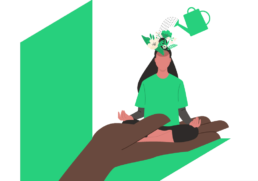
Mental Health and Wellbeing Toolkit
Mental Health and Wellbeing Toolkit
Toolkit collated by Clare Erasmus and Amy Sayer
What Is Mental Health?
Mental health is a term which refers to our emotional, psychological, and social well-being. Our Mental Health affects how we think, feel, and act and is an indicator of how we handle stress, our relationships with people and sometimes even the choices we make.
What Is Wellbeing?
Wellbeing has been defined as the state of being comfortable, healthy, or happy as well as our sense of purpose and how in control we feel.
Why Is this Toolkit Important for Diverse Educators?
It is now a well recognised fact that our Mental Health is as important as our physical health and that schools have a central role to play in enabling their pupils to be resilient and to support good mental health and wellbeing.
Teaching about Mental Health and Wellbeing is a core part of schools’ statutory curriculum delivery as well as protecting the wellbeing and mental health of staff. Both are now taken into account as part of Ofsted inspections.
In developing a whole school approach to mental wellbeing, we should seek to ask how inclusive and culturally sensitive are the school’s mental health processes and services in being appropriate and acceptable to all children and young people including from diverse families and from the LGBTQIA+ community.
The Diverse Educators’ Mental Health and Wellbeing Toolkit
- How do I develop a whole school approach to Mental Health and Wellbeing?
- How do I support Staff Mental Health & Wellbeing?
- How do I support Student Mental Health & Wellbeing?
- How do I introduce Mental Health & Wellbeing into the Curriculum?
- How do I practise Self care and life/work balance?
- How do I ensure my school has an Inclusive approach to Mental Health & Wellbeing?
Articles
Blogs
Books
Bethune, A (2018)
Wellbeing in the Primary Classroom: A practical guide to teaching happiness and positive mental health.
Bethune, A & Kell, E (2020)
A Little Guide for Teachers: Teacher Wellbeing and Self-care (A Little Guide for Teachers).
Brunzell, T. and Norrish, J. (2021)
Creating Trauma-Informed, Strengths-Based Classrooms: Teacher Strategies for Nurturing Students’ Healing, Growth, and Learning.
Erasmus, C. (2019)
The Mental Health and Wellbeing Handbook for Schools: Transforming Mental Health Support on a Budget.
Howard, C., Burton, M. and Levermore, D. (2019)
Children’s Mental Health and Emotional Well-being in Primary Schools.
Hulme, J. (2016)
The School of Wellbeing: 12 Extraordinary Projects Promoting Children and Young People’s Mental Health and Happiness.
Knightsmith, P. (2019)
The Mentally Healthy Schools Workbook: Practical Tips, Ideas and Whole-School Strategies for Making Meaningful Change.
Lohmann, R.C. (2015)
Teen Anxiety: A CBT and ACT Activity Resource Book for Helping Anxious Adolescents.
Luxmoore, N. (2014)
Essential Listening Skills for Busy School Staff: What to Say When You Don’t Know What to Say.
Morris, I. (2015)
Teaching Happiness and Well-Being in Schools, Second edition: Learning To Ride Elephants.
Musby, E. (2014)
Anorexia and other Eating Disorders: how to help your child eat well and be well: Practical solutions, compassionate communication tools and emotional … support for parents of children and teenagers.
Plummer, D. (2004)
Helping Adolescents and Adults to Build Self-Esteem: A Photocopiable Resource Book.
Podcasts
Resources
Department for Education
Education staff wellbeing charter is a declaration of support for, and set of commitments to, the wellbeing and mental health of everyone working in education.

